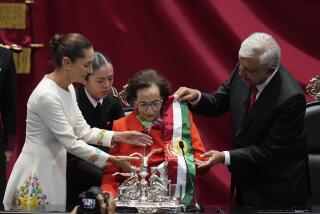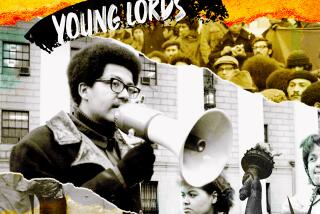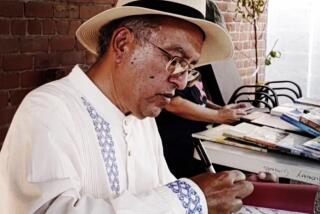Carlos Monsivais dies at 72; Mexican author and activist
Reporting from Mexico City — Carlos Monsivais, Mexico’s preeminent man of letters and a highly regarded critic of the nation’s social and political adventures for half a century, died Saturday after a long struggle with lung disease, the government health ministry announced. He was 72.
As a prolific writer and unflagging activist, Monsivais was one of his nation’s most lauded and consulted commentators and a leading intellectual of the Mexican left who championed causes but also fought back when ideals were betrayed.
In hundreds of books, columns, essays and other writings, he recounted difficult chapters of Mexican history, including the 1968 army massacre of student protesters and the 1985 earthquake that destroyed parts of Mexico City and killed thousands of people. But he also enjoyed critiquing art, movies, literature — even soccer — and often wrote with humor and irony.
“This is an enormous loss for Mexico, an enormous loss for the Spanish-speaking world,” Elena Poniatowska, famed Mexican writer and long-time friend of Monsivais, told Mexican TV.
“He was always at the side of those who suffered most,” she said.
Carmen Aristegui, a journalist who recently interviewed Monsivais for a new book, wondered if as acerbic an analysis of Mexico’s political reality will be possible without Monsivais’ eye.
Mexican President Felipe Calderon expressed “profound sorrow” for the loss of “an exceptional pen, an exceptional intellect.” He was echoed by other senior figures in government and the arts as Mexico City Hall prepared formal ceremonies including an overnight vigil at a downtown museum.
Monsivais was born May 4, 1938, in Mexico City and studied in the schools of economics and arts and letters at the National Autonomous University of Mexico, where he was part of the student protest movement that eventually helped push Mexico toward democracy.
Known early on as a chronicler of street life, he gave voice to Mexico’s minorities and oppressed while challenging those who abused their power. He became part of the generation of Mexican writers, including Poniatowska and Carlos Fuentes, who came of age in the 1960s. He wrote articles, columns and essays for most of Mexico’s major newspapers and magazines and became one of the country’s most recognized intellectuals.
His 50 or so books included a biography of Frida Kahlo and works that experimented with various genres, including “Dias de Guardar” (Days to Remember), “Amor Perdido” (Love Lost) and “Rituales del Caos” (Rituals of Chaos).
In an interview with El Universal newspaper two years ago, on the occasion of his 70th birthday, the white-haired writer spoke mournfully of the violence, unemployment and other ills plaguing Mexico.
“It depresses me,” Monsivais said. “This is not a good moment for the country. There is so much rancor, poorly distributed.”
But, speaking in his home, surrounded by books and his beloved cats, he hinted at the drive behind his work. “There is satisfaction in the unfulfilled duty. Everyone talks about having fulfilled their duty, but I am pleased not to have fulfilled even the minimum part of it.”
Monsivais never married and had no children. He had been hospitalized since early April and his health deteriorated in recent weeks.
“Carlos Monsivais dedicated his prolific life to reflect on Mexico, its history and the many facets of our society,” the Estanquillo Museum, founded by the author to house his works, said Saturday in a statement.
“Today Mexico lost part of its very voice, a fundamental part of its identity. …It lost its national conscience.”
More to Read
Start your day right
Sign up for Essential California for the L.A. Times biggest news, features and recommendations in your inbox six days a week.
You may occasionally receive promotional content from the Los Angeles Times.







